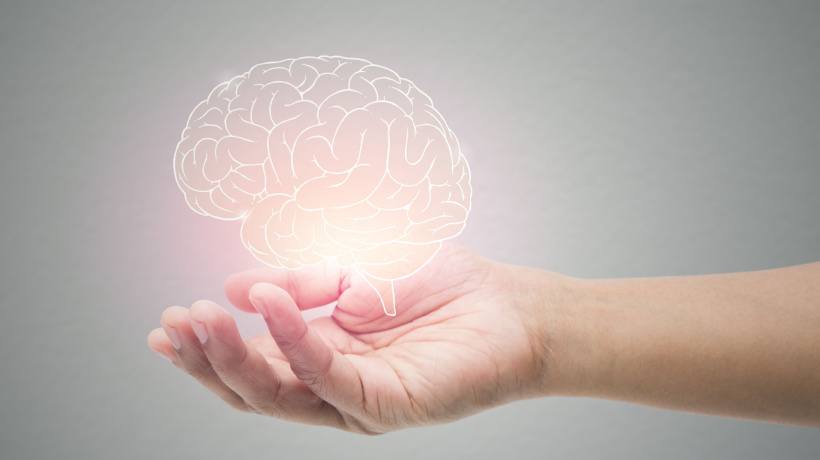Comprehensive Inpatient Mental Health Providers for Effective Treatment
Inpatient psychological health and wellness solutions represent an important element of the healthcare system, offering a structured and extensive atmosphere for people experiencing serious psychological distress. Exploring the subtleties of this continuum exposes considerable implications for both individual healing and broader mental health end results.
Recognizing Inpatient Mental Health And Wellness Services
Inpatient psychological health and wellness solutions offer essential assistance for people experiencing extreme emotional distress that can not be taken care of successfully in an outpatient setting. These solutions are designed to supply an extensive level of care in a structured setting, commonly within a health center or specialized facility. Clients admitted to inpatient programs generally present severe signs and symptoms, such as suicidal ideation, extreme anxiety, or psychosis, requiring round-the-clock tracking and treatment.
The admission process generally includes a thorough evaluation by psychological wellness experts, that assess the person's frame of mind, background, and prompt requirements. As soon as confessed, clients participate in a variety of restorative methods tailored to their certain needs, including drug management, private treatment, and group sessions. This alternative technique intends to stabilize the individual's problem, promote security, and foster coping abilities.
Inpatient psychological health services not just address prompt wellness concerns but additionally work as a bridge to continuous care. By offering a controlled atmosphere, these solutions promote the development of treatment plans that can be continued in outpatient setups, hence guaranteeing a continuum of treatment and enhancing lasting end results for people with complex mental health requirements.
Secret Elements of Effective Therapy
Reliable therapy in inpatient psychological wellness solutions consists of numerous key elements that promote healing and stabilization. A thorough analysis is necessary to recognize the individual's certain demands and difficulties. This evaluation informs the development of a customized therapy plan, which acts as a roadmap for intervention.
Another critical part is the multidisciplinary group method. Collaboration amongst psychoanalysts, psychologists, registered nurses, and social employees makes sure that different perspectives add to the individual's care, boosting the efficiency of therapy. Evidence-based healing techniques, such as cognitive-behavioral treatment (CBT) and dialectical behavior modification (DBT), are additionally important, offering organized strategies that address maladaptive idea patterns and behavioral concerns.

Last but not least, a concentrate on aftercare planning is critical to ensure a smooth change to outpatient solutions, reducing the danger of regression and advertising lasting wellness. These cumulative elements develop a reliable therapy structure within inpatient psychological health and wellness services.
Benefits of Comprehensive Care

Detailed care in inpatient mental health and wellness solutions uses numerous advantages that dramatically improve client outcomes. Among the primary advantages is the holistic technique to therapy, attending to not just the psychological symptoms however additionally the physical, social, and emotional needs of individuals. This thorough analysis permits tailored interventions that advertise general health.
An additional advantage is the combination of multidisciplinary groups, which promotes cooperation among medical care professionals. This collaborative setting guarantees that people obtain coordinated care, decreasing the danger of fragmented treatment and boosting interaction amongst caregivers. Additionally, comprehensive treatment promotes continuity of solutions, permitting seamless changes from inpatient to outpatient settings, which is important for long-lasting healing.

Finally, the structured setting of extensive inpatient care gives a risk-free space for individuals to involve in restorative tasks, helping them develop dealing approaches and resilience. Collectively, these advantages add to extra reliable therapy and boosted lifestyle for people experiencing psychological health situations.
Evidence-Based Therapeutic Strategies
In the realm of mental health treatment, evidence-based therapeutic approaches play an essential role in making sure that individuals receive effective and medically supported interventions. These strategies incorporate the best available research with medical competence and client values, promoting a customized therapy experience that resolves private needs.
Cognitive Behavior Modification (CBT) is among one of the most widely acknowledged evidence-based approaches, concentrating on recognizing and transforming negative idea patterns and habits. This structured strategy has actually demonstrated efficacy in dealing with conditions such as ptsd, depression, and anxiety. Likewise, Dialectical Behavior Treatment (DBT) is particularly reliable for people with borderline personality disorder, highlighting the advancement of emotional law and interpersonal effectiveness skills.
In addition, medicine monitoring is usually an integral part of evidence-based therapy, as psychotropic medicines can alleviate signs and enhance total functioning. Joint care models, which include multidisciplinary groups, better enhance the efficacy of inpatient services by ensuring comprehensive analyses and constant surveillance.
Eventually, the assimilation of evidence-based healing techniques not only promotes favorable scientific outcomes yet also encourages individuals, cultivating a feeling of company and strength in their psychological wellness trips.
Transitioning to Outpatient Support
The change from inpatient mental health and wellness solutions to outpatient support marks a vital stage in an individual's healing trip. This duration needs cautious planning and coordination to make certain connection of care and to alleviate the risks of relapse or crisis. Efficient discharge planning need to start early in the inpatient keep, including a multidisciplinary team that includes psychiatrists, psycho therapists, nurses, and social employees.
Trick aspects of an effective change consist of the development of a comprehensive aftercare strategy tailored to the person's details requirements. This strategy must outline follow-up appointments, drug management, and healing treatments, along with identify community resources and assistance teams that can help with recurring healing.
Moreover, person and household education is crucial throughout this phase. Recognizing the indications of possible obstacles and the importance of adhering to therapy can encourage clients and their support group.
Routine follow-up and review of the outpatient strategy are necessary to try this site address progressing challenges. By fostering a collective partnership in between inpatient and outpatient suppliers, the probability of sustained recovery increases, ultimately boosting the patient's lifestyle and lowering the threat of readmission.

Final Thought
In recap, detailed inpatient psychological health solutions supply an important framework for dealing with extreme mental distress with a multidisciplinary technique. By integrating evidence-based therapies, cultivating a structured setting, and promoting household useful source involvement, these solutions improve therapy efficiency. The emphasis on security and the growth of coping skills not only aids in instant healing yet additionally helps with a smoother shift to outpatient treatment. Ultimately, such detailed care is vital for long-lasting mental wellness and well-being.
The admission process normally entails a comprehensive evaluation by mental health and wellness specialists, who examine the individual's mental state, background, and prompt needs.Reliable therapy in inpatient mental health and wellness solutions makes up several key parts that promote healing and stabilization.Thorough care in inpatient mental wellness solutions supplies many benefits that significantly boost individual outcomes.The change from inpatient mental wellness services to outpatient support notes a vital stage in an individual's recovery trip.In summary, comprehensive inpatient psychological health solutions offer a crucial framework for addressing serious psychological distress with a multidisciplinary approach.